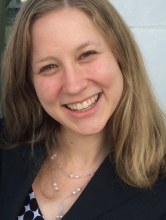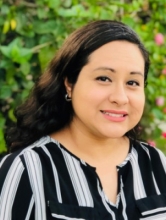Wendy Y. Perez, Joanna D. Geller, and Anne T, Henderson
In January 2021, NYU Metro Center launched a peer learning community for parent leadership organizations to advance their work on racial equity. Funded by the W.K. Kellogg Foundation, the Parent Leadership Racial Equity Peer Learning and Inquiry Community (PLC) is a partnership between the Center for Policy, Research, and Evaluation (PRE) at NYU Metro Center and four parent leadership organizations across the country. Over the past year, this PLC has been collecting data to inform and evaluate their racial equity action plans.
After completing participatory evaluation projects as part of an earlier project, the Parent Leadership Evaluation Network (PLEN), parent leaders and staff from four organizations decided to deepen their work on racial equity. They have been meeting bi-monthly to discuss their plans and the racial equity issues they are addressing. Groups also meet internally and with the PRE team every month. Each organization has a different racial equity focus.
Greater Rochester, New York Parent Leadership Training Institute (PLTI) focuses on increasing teacher diversity in Rochester and surrounding areas. They are engaging in conversations with parent leaders and key stakeholders to decide how to create systemic change.
Parents for Public Schools (PPS) in Mississippi is planning community conversations about racial inequities across Mississippi. In response to these dialogues, PPS will create civic academies to work on these issues.
Organizers in the Land of Enchantment in New Mexico (OLÉ) revised community meeting norms for their membership. To ensure that Spanish-speaking, immigrant, and BIPOC members are central in OLE’s work and campaigns, they will examine whether their practices are fully inclusive and equitable.
The Washington State Association (WSA) Parent Ambassadors is revising their mission, vision, and values statements to reflect their commitment to racial equity. They have engaged PA alumni in conversations about these revisions and will use them with new PA cohorts.
After one year, parent leaders and staff from the organizations reflected on what they are thankful for about this project, what they have learned, and the challenges they faced.
What Inspires Parent Leaders and Staff in Their Racial Equity Work?
One parent from WSA Parent Ambassadors talked about how she was grateful for being able to bring her values and culture, show who she is, and receive support. She also enjoyed bringing on more parents to work on behalf of their children and other children. A staff member from OLÉ shared that she was thankful for the work being done in the PLC across the country during a pandemic, where people asked for what they deserved.
A Greater Rochester PLTI parent leader shared his excitement about their work to create more teacher diversity:
"I'm personally vested because I have never had a teacher of color. And the one teacher who is in the building is still there. How can we make teachers like you the norm rather than the exception."
Another parent from WSA Parent Ambassadors described how she felt valued in the Racial Equity PLC. She felt that her knowledge has been respected even though she doesn't have a higher education degree. And that she didn't feel tokenized.
"The biggest thing for me is being shown that my words have value, my experiences have
value. My lived experience."
What Are Equitable Practices for Centering Parent Voice in Racial Equity Work?
A critical issue in this work is centering parent voice. A staff member from PPS discussed how important it is to be responsive to parents' schedules:
"Being available when they're available, asking them when they're available, adjusting my schedule to be available for them."
Another staff member from WSA Parent Ambassadors focused on how relationships are vital to the work:
"[Staff] stopped and took a pause and built relationships, so parents had trust in the process and what was going on."
An OLÉ staff member shared:
"Listening, hearing what's important to them in the moment, shaping conversation based on what's important to them to change. Build trust through listening."
What Was Challenging About Doing Racial Equity Work in 2021?
Balancing other commitments is a major constraint. A parent from PPS talked about limitations related to her employment:
"One of the things for me is the challenge of being present every time I need to be with work schedule…So many things that need us and not always enough of us to go around."
Staff also faced time constraints. WSA Parent Ambassador staff discussed the logistical hurdles to meeting as a group at a time that everyone could be present for each meeting.
Zoom burnout and being in survival mode during the pandemic were other challenges. A staff member from PPS explained how parent leaders wanted to meet in person:
"They keep asking when we can be in the same room and talk through everything. Zoom plus and a challenge. It’s a challenge for me because I like human contact."
Staff also discussed the problem of ensuring that everyone’s ideas are included and everyone feels “their voice is part of what we're doing."
Parent leadership organizations in the Racial Equity PLC have persisted during a pandemic because of their love for their communities and commitment to racial justice. As Year 2 begins, organizations will collect and analyze data related to their racial equity plans. At the end of the project this year, the Policy, Research, and Evaluation Center at NYU Metro Center will share case studies for each organization, a webinar, and a final video with the public. For more information, contact Dr. Wendy Y. Perez via email: wp30@nyu.edu.
Anne T. Henderson is a senior consultant to the National Association for Family, School, and Community Engagement; her speciality is the relationship between families and schools, and its impact on students’ success in school and through life.



